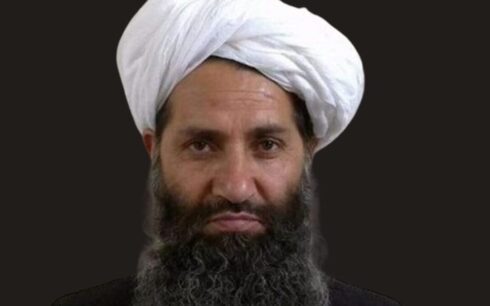GENEVA — The United Nations High Commissioner for Human Rights, Volker Türk, criticized the Taliban on Wednesday, saying that their measures restricting media freedom and other rights “fly in the face of international human rights treaties” to which Afghanistan is a party.
A joint report released by the U.N. Human Rights Office and the U.N. Assistance Mission in Afghanistan (UNAMA) outlined a stark decline in media freedoms and widespread human rights violations since the Taliban’s takeover on August 15, 2021. The report, covering the period through September 30, 2024, painted a troubling picture of increasing censorship and restrictions on journalists, particularly women.
“Journalists, media workers, and media outlets are operating under a worsening environment of censorship and restrictions in accessing information,” the report said. “Women journalists and media workers face particularly restrictive and discriminatory measures, profoundly limiting their ability to do their work.”
A call for media freedom
Türk urged the Taliban to honor Afghanistan’s obligations under the International Covenant on Civil and Political Rights, which ensures freedom of expression and equal treatment without discrimination.
“Central to this is respecting the vital role of journalists and media workers, including women, and facilitating the exercise, in safety, of their essential profession,” he said.
At a press conference, Farhan Haq, Deputy Spokesperson for the U.N. Secretary-General, echoed these concerns. He said the report documented “worrying trends for media freedom in Afghanistan” and underscored the deteriorating environment for journalists since the Taliban’s return to power.
“The report shows that journalists, media workers, and media outlets are increasingly operating under conditions of censorship, limited access to information, and discriminatory measures targeting women journalists,” Haq said.
Taliban rejects report
The Taliban dismissed the findings. Zabiullah Mujahid, a spokesman for the Taliban, denied the allegations and defended the Taliban’s approach to media regulation.
“We reject this report because, unfortunately, it is not based on accurate information,” Mujahid said. “If we have broadcasts, media, and media activities in Afghanistan, there are frameworks and laws for them to operate under.”
However, the report documented significant barriers imposed on the media. The Taliban’s Ministry for the Promotion of Virtue and Prevention of Vice has been granted authority to interfere with media operations, and new rules banning the filming or broadcasting of living beings have led to the shutdown of numerous TV channels across several provinces.
The restrictions have compounded the challenges for media workers in Afghanistan, with many forced to cease operations due to lack of access, safety concerns, or financial constraints. Women journalists have been particularly affected, as they face not only professional restrictions but also societal discrimination under Taliban rule.
“Many media outlets have been forced to halt operations entirely,” the report noted, describing the ban on broadcasting images of living beings as a severe impediment to journalistic work.
The U.N. reiterated its call for the Taliban to respect human rights, stressing the importance of a free press as a cornerstone of accountability and governance.





